The government insists a ‘no deal’ is unlikely. But what happens to UK food and drink if it can’t deliver on the vision of its Brexit White Paper?
When returning MPs gather next week, they will need to talk about food. In a little under seven months’ time the UK will cease to be a member of the EU, setting in motion the biggest shake-up of the UK’s food supply system since the Second World War.
Brexit secretary Dominic Raab sought to allay fears last week when he set out the measures the government was taking to ensure business continuity in the event of a ‘no-deal’ scenario. “Let me assure you that you will still be able to enjoy a BLT,” promised Raab, repeatedly insisting on the unlikelihood of Britain leaving without a deal.
Publicly at least, the government remains optimistic of delivering the vision set out in its Brexit White Paper, which would “probably remove 90% of the impacts for the food sector”, in the view of EY’s UK Brexit strategy leader, Mats Persson. But Persson reflects the concerns of many when he says there’s a big question mark about whether this model is politically and practically sustainable.
In the event Raab and his fellow negotiators fail to bring home the bacon, a no-deal scenario is a “grisly prospect” for UK food and drink, according to FDF chief executive Ian Wright.
Read more: F*** business? It’s high time politicians started to address Brexit concerns
The question food - along with every other industry sector - needs urgently answering is: just how disruptive could it be?
The Grocer has spoken to trade bodies representing businesses who employ millions of staff along the supply chain, as well as consultants advising those businesses and businesses themselves, to explore best and worst-case scenarios.
A majority view has emerged over three best-case requisites: continued free and frictionless trade with the EU; access to a pool of both skilled and non-skilled workers; and the maintenance of current standards that guarantee the kind of quality, safe food British consumers have come to expect.
Naturally, there are dissenting voices. Wetherspoon chairman Tim Martin has ordered the production of 500,000 commemorative beer mats informing his customers that no deal will mean lower prices on products such as rice, coffee and oranges if the UK embraces free trade.
But the consensus is that, where food is concerned, Brexit represents a leap into the unknown.
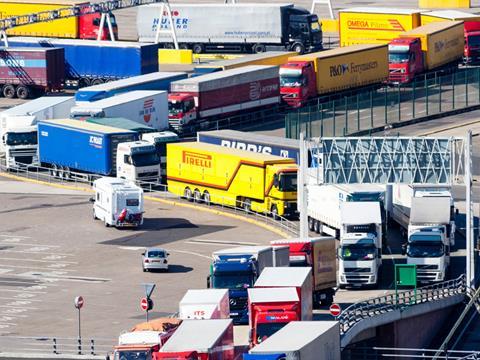
Trade
Where are we now?
The EU accounts for over 70% of UK imports and exports of food and non-alcoholic drink. Since the UK is currently part of the EU internal market, customs union and common VAT & excise areas, there is zero-tariff trade on goods and no inspections, customs duties or border checks impeding free movement.
What is being proposed?
A transition period maintaining current terms until the end of 2020, after which the UK is seeking check-free customs controls for EU traded goods while having the freedom to strike its own trade deals. The EU has indicated that no-deal would see the UK treated as a third country, meaning border tariffs and customs checks and controls.
Best-case scenario?
The industry is united in prioritising the need for free and frictionless trade with the EU. “If you can get the icing on the cake of extra trade deals elsewhere that’s a nice to have, but the core food business is integrated with EU markets in both directions, and particularly Ireland, so free and frictionless trade is an absolute priority,” says Andrew Kuyk, director general of the Provision Trade Federation.
Read more: Can industry stockpile food supplies in a no deal Brexit?
Both the FDF and NFU argue that UK producers also need continued access to all of the markets with which the EU has secured preferential trade agreements, while the NFU stresses the importance of trade agreements that maintain the UK’s high food, animal welfare and supply chain standards.
Worst-case scenario?
The so-called cliff-edge, no-deal, rotting food scenario where the UK falls back on WTO tariffs and customs checks is what businesses fear. “In a no-deal scenario, with a WTO trading arrangement, many companies we work with would see their profits wiped out,” says Persson.
Ports such as Dover are not set up to deal with any customs barriers. Even if a transition period until 2020 is put in place, “to develop the type of systems where you can have a frictionless border between the UK and the EU is going to take a good deal longer than that”, says Bob Jones, customs excise and international trade services director at KPMG.
A hard Irish trading border, meanwhile, would be particularly damaging for goods such as dairy products, while UK exporters risk being unable to service EU markets on a just-in-time basis.
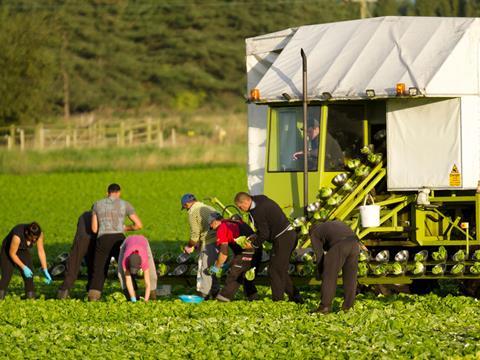
Labour
Where are we now?
Two million EU nationals work in the UK, including 400,000 in the food and drink supply chain. Thirty per cent of those are in manufacturing. Another 60,000 are employed on a seasonal basis in agriculture.
What is being proposed?
The transition period will maintain current hiring arrangements until the end of 2020, during which time EU nationals can apply for settled UK status.
Best-case scenario?
Whatever form a future immigration system takes, businesses largely agree on the need for continued access to a pool of EU workers. UK Hospitality CEO Kate Nicholls says a future system should act to benefit the UK’s economy rather than be “determined by ideology or beholden to arbitrary targets” and must not exclude medium and lower-skilled workers in favour of high-skilled migrants. There is also widespread agreement that it would need to be easily navigable and able to react to changing consumer demands.
Read more: Labour costs soar as Brexit staff challenges hit poultry processors
Longer-term, Brexit could aid innovation: “In recent years the agritech and foodtech sectors have seen great advances, including utilising drone data and investing in robotic pickers, and this can only accelerate given the labour availability headwinds,” says Lisa Hooker, UK leader of industry for consumer markets at PwC.
Worst-case scenario?
The cliff-edge scenario would again spell disaster for many businesses. For labour this would mean the immediate inclusion of EU nationals within the UK Tier 2 visa system for people from the rest of the world, reducing their access to the UK labour market and resulting in unfilled vacancies in logistics and distribution roles, according to the BRC.
The FDF says reverting to the non-EU tier system would be devastating for the food and drink supply chain. It notes that for five straight months at the beginning of 2018, the Tier 2 cap, which is fixed at 20,700 visas per year, has been reached pro rata, affecting the food sector’s ability to recruit the talent it needs. Under this system, employers would also need to fork out almost £1,500 for a licence to recruit from abroad.
A significant shortage in farm workers would also be an expected outcome of a no-deal scenario that didn’t include a work permit scheme.
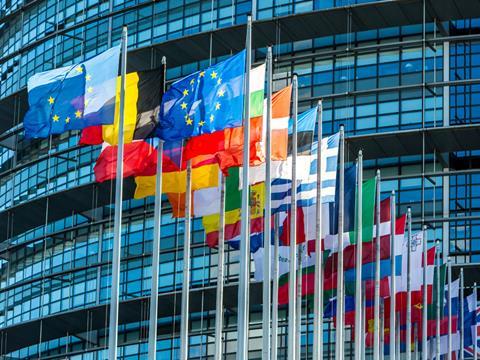
Regulation
Where are we now?
The UK is currently part of a regulatory union within the EU internal market, meaning the 27 member states share common standards on animal welfare, food hygiene and labelling. This means there are no checks required for sanitary or phytosanitary purposes on food traded within the EU.
What is being proposed?
The UK plans to cut and paste EU law into domestic law for day one of Brexit under the EU Withdrawal Act. It will then be up to parliament to decide if and when to make changes. The Brexit White Paper sets out proposals for the UK to seek regulatory alignment in areas covered by the common rulebook - in essence those that would otherwise require checks at the border - with divergence permitted where there is hope for mutual recognition without border checks, such as in labelling and agricultural policy.
Best-case scenario?
Businesses are determined to avoid compromising the current check-free flow of food between the EU and the UK. For the FDF, the best outcome would see regulatory equivalence on issues such as food safety and labelling, with the UK able to input into the EU technical committees that develop regulations.
Read more: Food & drink M&A activity on the rise despite Brexit concerns
Other priorities are for continued access to intelligence gathering tools, at least until an equivalent robust and independent UK scientific risk assessment body is developed.
If the UK decided to diverge from EU law over time by, for instance, making traffic light labelling mandatory, the EU would ideally recognise these regulations to ensure a free flow of trade. In reality, however, this could be difficult to achieve.
Worst-case scenario?
Industry leaders and campaigners agree a race to the bottom on standards would not only damage the environment but undermine consumer confidence.
The UK may copy and paste existing EU law into UK law on day one, but if the EU chooses not to recognise UK rules it would result in complex form-filling and physical checks at the border, causing delays.
Longer term, business leaders fear regulatory fragmentation between devolved UK areas such as food labelling and animal welfare. “If Scotland, Wales or Northern Ireland suddenly had different rules you would then have the double whammy of potential divergence from the EU but also divergence within the UK,” says Kuyk.
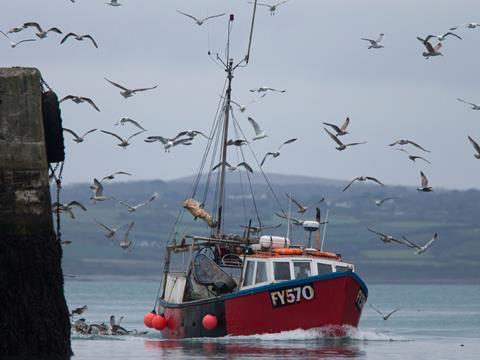
Farming & fishing
Where are we now?
UK fishing and farming is governed by the Common Fisheries Policy and Common Agricultural Policy. The former regulates access to waters, allocates quotas and sets fisheries management policies, while the latter pays farmers a subsidy based on the area of land they farm.
What is being proposed?
The EU Council’s negotiating guidelines link reciprocal access to UK fishing waters to any wider free trade agreement on all goods, not just fish. The UK position essentially states that all future fisheries management issues will be for the UK to decide.
Farming is potentially less contentious as the UK would leave the CAP and be free to design its own domestic agricultural policy. The government has already promised farmers that current levels of financial support will continue until 2022.
Best-case scenario?
An optimal scenario would see the UK fleet have a significantly higher share of stocks in UK waters while maintaining the ability to export freely to EU markets. Processors, meanwhile, would maintain access to raw materials at competitive prices from both EU and non-EU sources.
Read more: Brexit threat to our food standards cannot be ignored
On farming, the NFU has been unequivocal that a future UK policy should maintain a level playing field between UK farmers and their overseas competitors, while public investment in agriculture should remain effective in promoting productivity, providing fair reward for environmental delivery and managing volatility.
Worst-case scenario?
The UK could simply slash its tariffs to zero on day one and start importing cheap food from third countries such as the US and Australia - exposing UK farmers to the full force of global competition overnight. Not only would they have to compete with third country farmers producing to potentially lower standards, under WTO rules the UK would have to unilaterally set tariffs at zero, meaning EU producers would maintain unfettered access to the UK.
On fishing, failure to agree a free trade deal with the EU would leave UK fishermen either seeking new markets or paying tariffs on the 80% of their catch that currently goes to the EU. Border delays for live exports of crabs and shellfish, meanwhile, would be “catastrophic”, says Kuyk.







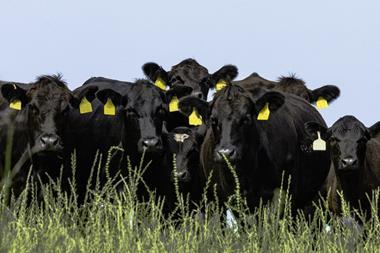
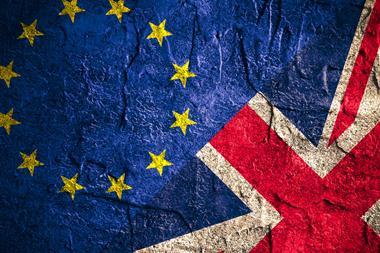
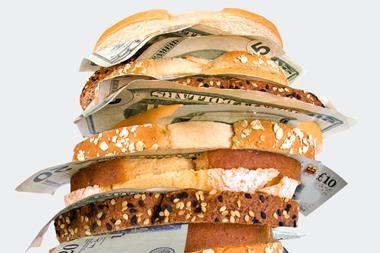

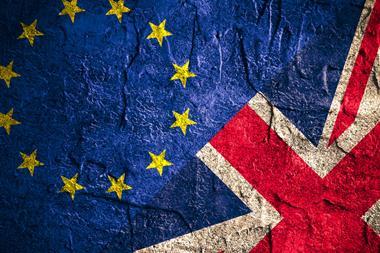
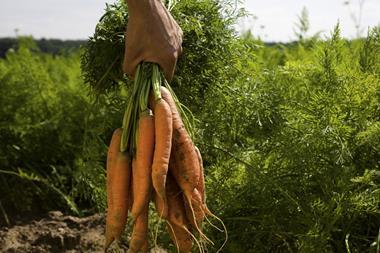






No comments yet